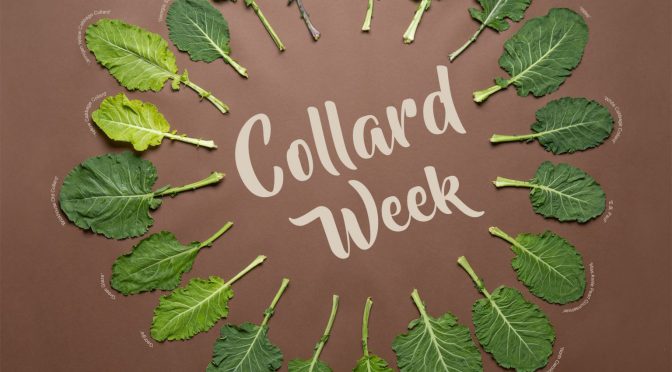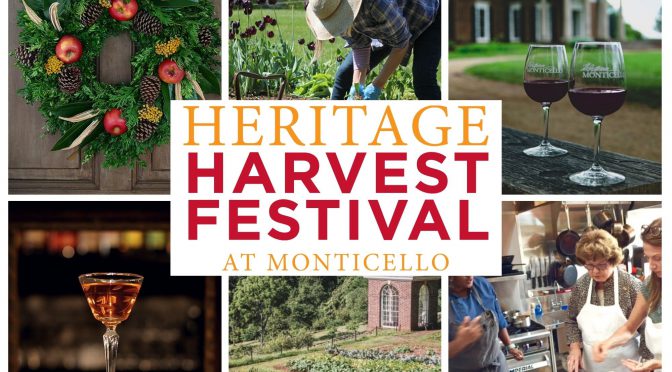Southern Exposure Seed Exchange is proud to be a partner in The Heirloom Collard Project. In conjunction with The Utopian Seed Project, Seed Savers Exchange, Working Food, and The Culinary Seed Network we’re striving to build a coalition of seed stewards, gardeners, farmers, chefs, and seed companies working to preserve heirloom collard varieties and their culinary heritage.
Join us this December as we celebrate Collard Week!
This December 14-17, immerse yourself in food history, seed stewardship, gardening, farming, cooking, and more. Join the conversation as part of the Heirloom Collard Project!
All events start at 1 PM Eastern and will be live broadcasted via Culinary Breeding Network’s Youtube channel. All episodes will be approximately 1 hour in length.
Schedule
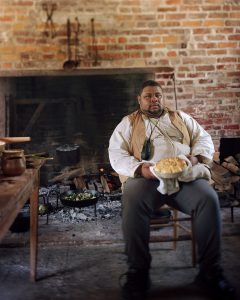 Monday, December 14, 1 PM – Michael Twitty presents the History and Significance of Collards in the South
Monday, December 14, 1 PM – Michael Twitty presents the History and Significance of Collards in the South
Michael Twitty will kick off Collard Week with a talk about the historical, culinary, and cultural heritage of collards in the South.
A 45 minute pre-recorded presentation will be followed by a Live Q&A with award-winning author, Michael Twitty.
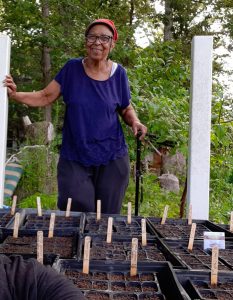 Tuesday, December 15, 1 PM [Part I] – Ira Wallace & Co. present Results and Updates from the 2020 HEIRLOOM COLLARDS TRIAL
Tuesday, December 15, 1 PM [Part I] – Ira Wallace & Co. present Results and Updates from the 2020 HEIRLOOM COLLARDS TRIAL
- Ira Wallace will share an overview of the Heirloom Collard Project.
- Nora from Seed Savers Exchange will share preliminary results from the 2020 Collards Trial.
- Collards across the USA – a photo show of collard trial participants.
 Tuesday, December 15, 1 PM [Part II] – Jon Jackson leads a Collard Trial Farm Tour of Comfort Farms
Tuesday, December 15, 1 PM [Part II] – Jon Jackson leads a Collard Trial Farm Tour of Comfort Farms
Jon Jackson, a former US Army Ranger, started Stag Vets, Inc, operating at Comfort Farms where he says, “nothing grows in comfort.” Well aware of the trauma returning veterans face, Jon created a space for healing and connection through an approach he calls “Agro-Cognitive Behavior Therapy”.
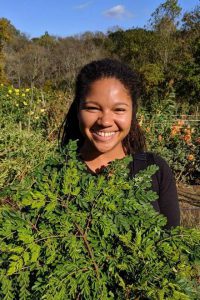 Wednesday, December 16, 1 PM – Amirah Mitchell presents Saving Seeds and Growing Community
Wednesday, December 16, 1 PM – Amirah Mitchell presents Saving Seeds and Growing Community
Amirah Mitchell will teach us how to save seeds, with a focus on brassicas (Collards), and why it’s so important.
Amirah has worked in agriculture for over 12 years and is a practicing seed keeper of over two years, focusing on food crops of the African diaspora. Currently, she is studying horticulture at Temple University and is spending her third season working at Truelove Seeds.
 Thursday, December 17, 1 PM – Ashleigh Shanti presents Cooking with Collards
Thursday, December 17, 1 PM – Ashleigh Shanti presents Cooking with Collards
Ashleigh Shanti will lead a cooking demonstration and discourse on cooking with collards. We’ll share her recipe ahead of time so you can be prepared to cook along and enjoy the dish!
To learn more about these awesome events please visit The Collard Week website.
Registration
These events are free but you do need to register ahead of time. Please register at The Culinary Breeding Network website.

